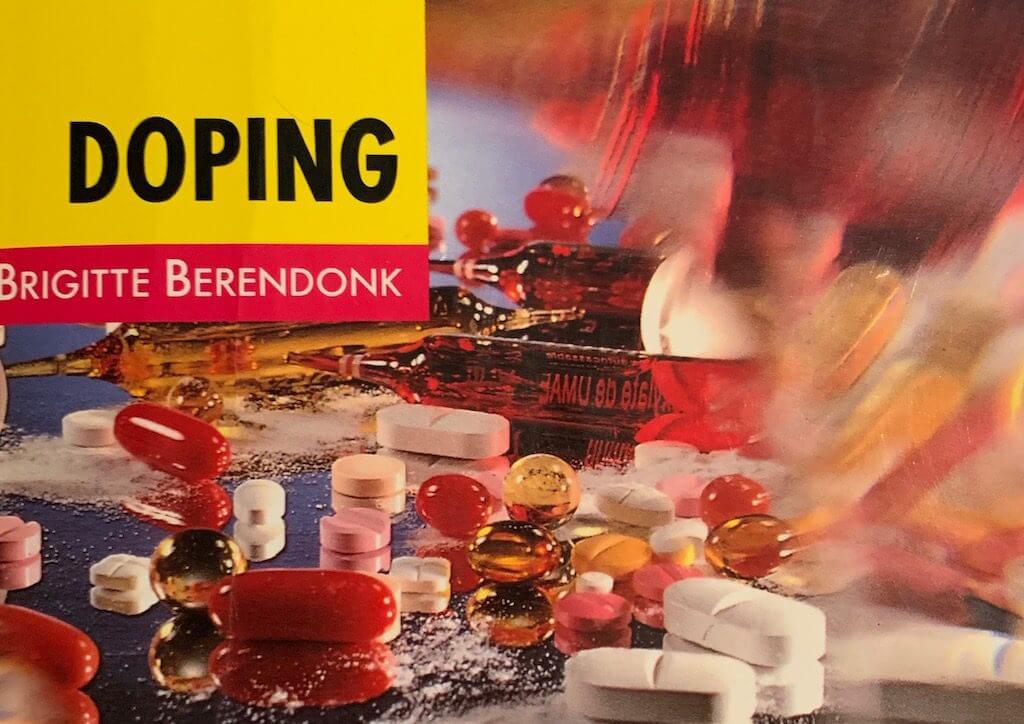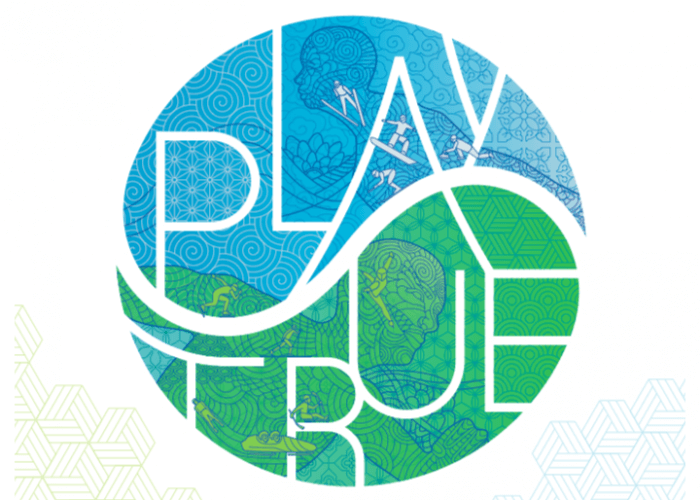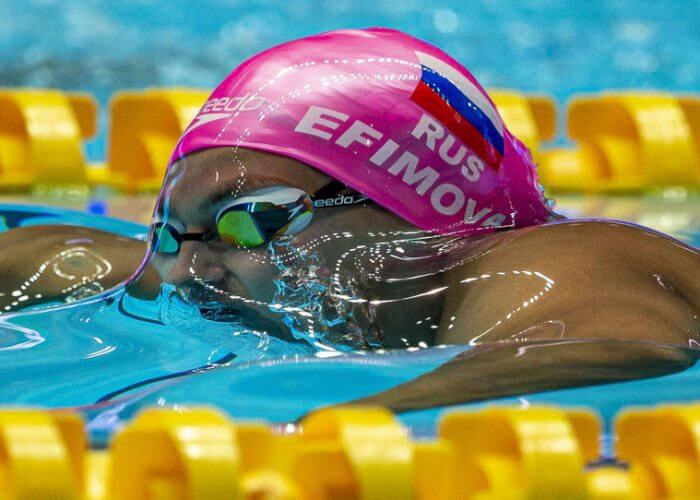Time For WADA To Blow Blanket-Ban Whistle On Game Of Russian Roulette With Clean Sport

Commentary
WADA, The Russian Roulette With Clean Sport & The Need For A Blanket Ban
The latest report on Russia’s systematic doping program screams of attempts to manipulate not only samples in the chain of custody but witness statements and more in a cover-up aimed at implicating whistleblowers and protecting rogues. An obvious question arises (again): does the punishment recommended fit the crime?
No is the only answer, under the circumstances. If four years of sanctions that meant no Russia flag allowed at Rio 2016, certain officials barred from attending certain events, the nation unable to host some sports events (but many did proceed), organisers told they must withdraw “if there is no legal impediment to doing so” (there is always a contract…and often a loophole) led to more obfuscation and rule-breaking of breath-taking proportion, then what would be achieved by repeating the exercise?
A nation-wide ban is provided for under the WADA Code. If what has unfolded in Russia does not merit that top-level response, then what would? If not now, then the ultimate weapon in the WADA Code may well be seen as just another white feather in the masquerade of doping and anti-doping.
In a weighty report, the World Anti-Doping Agency (WADA) spells out the ways in which Russia reworked and manipulated data that was supposed to be used to prosecute doping cases in order to hide a state-run system to win Olympic medals. WADA investigators went to painstaking lengths to conduct forensic research on 23 million megabytes of data – and discovered a vipers’ nest of cheats.
Under recommendations that WADA’s executive will discuss on December 9, penalties would be similar to provisions in place last year, when 168 athletes were vetted and approved to compete at the winter Olympic Games in Pyeongchang. Those athletes won a total of 17 medals, each celebrated at home as a gain for Russia, regardless of whether the nation’s flag flew or the code RUS was missing from the result sheet.
“The highest consequences” is what Rob Koehler of representative body Global Athlete reaches for as he notes the risk in falling shy of that:
“The big picture is, if we don’t do something that has the highest consequences for Russia, athletes will suffer forever. In Russia, they’ll be forced into programs they shouldn’t have to be in. The more complicit (WADA) is in allowing them to compete, the less likely we are to seeing change in sport in Russia.”
That surely sums up the frustrations of a reformed RUSADA, the Russia anti-doping agency. Under the leadership of Yuri Ganus, the agency appears no longer to be a part of the problem but a body seeking genuine solutions in pursuit of clean sport, athlete protection and ridding their country of old and poisonous habits.

Play True – Photo Courtesy: WADA
A pity that work is not given the strongest banking possible from WADA and the International Olympic Committee (IOC) behind it.
The recommendation of the WADA Compliance Review Committee speaks of legal ease and falls shy of the strong message the WADA Code delivers in word but never in deed: ban the nation, make it a pariah, force the circumstances in which every clean sports person and organisation in Russia is not criticising the critics beyond its borders but lambasting the rogues within.
Yes, it would be tragic for the clean athletes of Russia. It’s been tragic, too, for generations of athletes thumped into also-rans-and-swams and deprived of their rightful rewards.
Nothing short of cultural revolution in Russian sport will do. Here’s a quick trawl of the prevailing why that sits on a festering heap of the historic why:
- Russia had been given a clear instruction to hand over data from its Moscow lab by the close of 2018. It missed the deadline. It is, of course, a lot of work to sort through thousands of hidden samples that appear to have a problem attached to them.
- All the more work involved, of course, if your intention it to manipulate that data and weave a narrative that becomes part of the big lie: this is a story in which those who planned cheating then sought to conceal their cheating, undermine whistleblowers and protect people who, quite clearly, should be banned for life from any contact with sport and athletes.
- Instead of putting every effort into complying with the requests of WADA investigators in the wake of the McLaren Report, Russian authorities, in the words of AP reporter Eddie Pell, “stayed busy in a round-the-clock endeavour to keep changing, deleting and manipulating the data”.
- Among the 380-plus pages in the compliance report is this: tampering had “materially prejudiced the ability to pursue” as many as 145 cases. It is not yet known beyond those who know how man of those athletes are still competing.
- Some of the fabricated evidence has already been used to defend Russian athletes at the Court of Arbitration for Sport. That raises questions of perjury and the need to overturn CAS decisions in place.
- Rewriting of memos to make it look as though the man who exposed the plot was leveraging the Russian doping scheme to line his own pockets.
- Rewrites were designed to eliminate any record that one of Russia’s own key defense witnesses in the case had done anything wrong. An example:
“Treat all the files the same, and you can take your Bonus home,” said one of the doctored messages, purported to have been written by whistleblower Grigory Rodchenkov to another worker, Timofey Sobolevsky, at the now-infamous Moscow antidoping lab. The truth: the original messages were to Sobolevsky from a key Russian witness and purveyor of the plot, Evgeny Kudryavtsev. Those simply said “OK,” and “Tim, we will soon be giving it.”
Kudryavtsev has called Rodchenkov a liar. It turns out that Rodchenkov, who lives in hiding in the United States, was not part of the original exchange. Kudryavtsev was.
That exchange was one of thousands of manipulations that were concocted long after Russia had agreed to hand over the data in its original form.
Russian authorities doctored files as late as January 16, 2019, at a time when WADA investigators were already at the Moscow laboratory of RUSADA and a day away from leaving with tainted data being handed over beyond a deadline.
Among explanations for data discrepancies were system malfunctions and routine “space-clearing” exercises that occurred at the beginning of every year.
A Conclusion That Demands An Uncompromising Response

Play True – Photo Courtesy: WADA
WADA’s report concludes Wirth a stark message: that the Russians were so focused on altering the most damaging data that they scoured through 11,227 of the exchanges to “identify and delete 25 highly inculpatory messages”. The report adds:
“They therefore planted fabricated evidence into the 2019 … database that would allow them to blame those discrepancies on Dr [Grigory] Rodchenkov, Dr Sobolevsky” [and another worker]. Such bad faith is indeed stunning, and … it provides a lens through which the explanations offered by the Russian authorities for the following subsequent events should be observed.”
Rodchenkov was the chief whistleblower shedding light on systematic cheating that included the use of secret-service personnel in a covert operation run at the anti-doping lab in place for the 2014 Winter Olympics.
The Russian Response: Politics & A Changed Tone at RUSADA
The WADA report is shaming for Russian authorities – and yet there is no sense of shame from a leadership that will only learn if they hear from Russians locked out of world sport not by nasty “western” influences but by the criminality and cover-up of their own guardians.
No Russia ban is proposed, the flag would go, some athletes would go but much would stay the same, as it clearly has in the past four years.
Foreign minister Sergei Lavrov called WADA’s discoveries and the recommendations of the compliance committee the latest attempt among Western efforts “to put Russia in a defensive position accused of pretty much everything in every sphere of international life.”
There was a very different tone from RUSADA, Yuri Ganus, the head of the Russian Anti-Doping Agency, said the sanctions “were to be expected, and they’re justified.”
Whether Ganus’ view will prevail remains to be seen in a country where the government is still behaving as if it happy to be a key player in a Cold War of doping of its own making, complete with spies and intrigue and manipulation and the masquerade culture so deeply embedded in its heart and mindset.
Vladimir Putin is the President of Russia. In the 1980s, he was the head of the KGB in that part of East Germany that was home to the science and testing facilities at the heart of State Plan 14:25. Putin’s office was not far from Kreischa, the IOC-accredited laboratory that was used not to catch cheats but to make sure cheating was never uncovered. It is almost impossible to believe that Putin, who in 2014 on the cusp of the ongoing Russian doping crisis was granted FINA’s highest honour, did not know what was going on in sport right under his nose on his watch as chief spy on location for the Soviet Union. The record doesn’t appear to point to the man being sloppy.
Putin and those working under him could have prevented the latest efforts to conceal and cover up. Instead, he and his ministers have been wedded to a tired mantra: that the nasty, jealous west is just out to harm Russia.
On the harm done to Russian youth and culture and image in the world, they say far less.
Russian Swimmers, With All Others, Deserve Answers Too

Yuliya Efimova – Photo Courtesy: Patrick B. Kraemer
On the way to Rio 2016, Vladimir Morozov, Nikita Lobintsev and four Russian swimmers who had previously tested positive for doping, Yuliya Efimova, Natalia Lovtcova (two previous offences), Anastasia Krapivina and Mikhail Dovgalyuk, were barred from the Olympic Games because they were linked to data identified in the WADA-commissioned McLaren Report as problematic.
Morozov and Lobintsev were the first to be cleared to race after legal intervention, while the other four would also be cleared to race by decisions taken by the IOC and related bodies, including FINA.
Initially, FINA barred all the swimmers named in the McLaren Report as having problems associated with anti-doping data. The precise nature of the problems was never fully explained but has since been assumed to relate to samples that were manipulated in ways that do not necessarily implicate the athlete in cheating.
The IOC initially instructed federations to bar any athletes from Russia with previous doping suspensions to their names. However, athletes from other countries in precisely the same position had not been blocked. Efimova was among those who challenged.
She was reinstated and in Rio went down, with Sun Yang and others, as the most booed swimmers in Olympic history, each walk out to the blocks and medal ceremony accompanied by jeering from the team stands as peers voiced their objections to the presence of those towing doping records back to the pool. Lovtcova also raced in Rio, despite having had two previous penalties imposed on her.
In the end, Russian swimming, with the worst record of doping in the sport in the decade leading up to Rio 2016, was untouched by the IOC, FINA, WADA, McLaren, the Russian doping scandal in general, despite clear evidence of a link to the now banned-for-life Dr Sergei Portugalov and clear evidence of two EPO positive tests returned by Russian swimmers but never reported to WADA.
Swimmers such as Morozov deserve the truth to be told on manipulated data, so that any lingering taint of being linked to woeful events can be washed away if there is no case to answer. As things stand, there has been no clear explanation as to why the swimmers were linked to McLaren in 2016 and there remains no clarity when it comes to whether any of those cases are included in the manipulated data now in focus.
What WADA Bosses Must Work Out

Play True – Photo Courtesy: WADA
WADA’s executive committee is scheduled to review the compliance report on December 9. The sanctions recommended fall shy of the place where Lavrov and Co would be forced to face a nation of sportsmen and women demanding to know why they are locked out of international sport from Tokyo to Paris.
Last year WADA was said to have struck a “great deal” with Russia, which would now comply and all would be well.
Russian authorities shook on the deal and then did what it has long done: anything possible to hide the truth. WADA has been played and played again – with no support from the International Olympic Committee.
IOC president Thomas Bach is against a whole-nation, blanket ban. He has been from the start and has stuck to that line regardless of what it has meant: doing deals with Russian authorities that had no intention of complying, no will to Play True, Play Fair.
Bach and the outgoing head of WADA Sir Craig Reedie, have both nailed their colours to the mast: Russia, they have either said outright or indicated in word and deed, is just too important a cog in the Olympic wheel to chisel out.
What they have not taken account of is the damage of deep erosion biting away at the Olympic brand. The tipping point, beyond which the rings become toxic, is to be found in a place where a big country stands to fight another day without changing what needs to be changed despite cheating, getting caught for cheating in systematic measures, cheating again, with manipulation, lies, politics and the power of state over the Olympic Movement in the mix.
IOC worthies have reached for the power of “forgiveness”. It is misplaced. Bruce Lee once said: “Mistakes are always forgivable, if one has the courage to admit them.”
The trouble with Russia in sport is that none of this was a mistake. It was meant. Yuri Ganus knows it, admits it. Among people in positions of high power, he would appear to be in a minority yet.
That will not change unless WADA blows the whistle on a rotten game allowed to go on too long.



